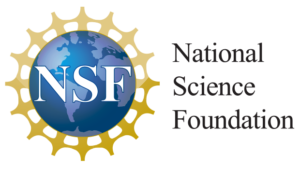W09: NSF INCLUDES: Empowering All Youth for STEM
The 2016 budget request for the National Science Foundation includes a new initiative related to broadening participation in STEM fields called Inclusion across the Nation of Communities of Learners that have been Underrepresented for Diversity in Engineering and Science (INCLUDES). A workshop conducted at the conference by Claudia Rankins, of the National Science Foundation, used small-group discussions to identify a set of visions for broadening participation in STEM as part of an effort to engage stakeholders in informing NSF’s investment in the program.
INCLUDES is envisioned as a comprehensive national initiative that uses a collective impact approach to increase the preparation, participation, advancement, and contributions of all scientists and engineering students, including those who have been traditionally underserved and underrepresented in STEM. This includes underrepresented ethnic and racial groups, women and girls, and persons with disabilities.
The INCLUDES initiative is currently planning to have two pilot programs: Networks for STEM Excellence, and Empowering All Youth for STEM. The workshop focused on the latter of these two pilots, which will be led by the Directorate for Education and Human Resources in collaboration with the other NSF directorates and the Office of Integrative Activities.
Feedback from workshop participants generated a number of priorities. One attendee said that NSF could have a major impact in high schools, particularly by partnering with other groups in the community such as museums and nonprofits. Such an intervention could help students come to college with a better foundation in STEM fields. Another participant added that even in middle school students are not receiving enough science education and suggested working with teachers to improve middle school STEM courses.
Teacher recruitment and preparation was another suggestion. If NSF can reward and encourage undergraduates in STEM to go into teaching at the elementary, middle, and high school levels, their students could be better prepared for college. The issue of teacher pay was raised, with one participant noting that low pay discourages many highly qualified individuals from those jobs.
A workshop member from California noted that programs to bring high school students into universities for research experience have greatly improved their skills. Another attendee suggested that computer science gets too little attention in K-12 curriculum and could receive new emphasis.
When participants at the workshop were asked how they would spend $5 million to improve STEM education, one suggested providing mentoring and job shadowing opportunities for middle and high school students to expose them to different STEM careers. Erin Banks from North Carolina State University discussed her university’s partnerships with STEM-focused elementary schools in the area. She agreed that the entire pipeline is important, not just one part of it.
One participant asked NSF to think nationally and proposed sending STEM college students to speak at high school and middle schools about their experiences. Another participant suggested tying together programs that already exist to increase efficiency and reach.
Ashalla Freeman from the University of North Carolina at Chapel Hill added that many students admire the career track she has taken, from a PhD in microbiology to positions as a postdoctoral fellow, science administrator, and program director. NSF could create a career track to give students the opportunity to direct programs themselves, she suggested. She also proposed creating a position for a PhD to talk to teachers in middle and high school and give them better STEM training.
Other suggestions for NSF included the following:
- Hiring full-time tenure-track professors with a focus on social justice and equity
- Incentivizing faculty to address bias, in part by putting money into building competencies and teaching about bias in departments
- Copying successful programs and trying to replicate successful outcomes
- Integrating insights from different sectors to chart a productive path foward
- Increasing the diversity of teachers, particularly at the middle school and high school levels
- Encouraging tenured faculty to talk about their research in grade schools and middle schools

